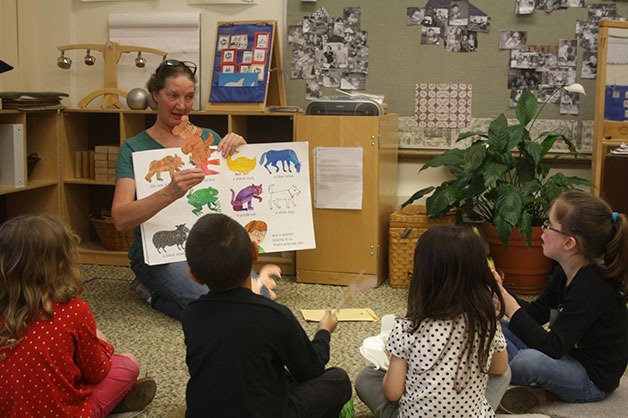After 50 years, the Head Start program will be celebrating the important things: the people who have helped make the program a success and, more importantly, the people who have been successful in the program.
Mary Ellen Lykins, director of the Head Start program in Skagit, Island and San Juan counties, is working on organizing an anniversary celebration.
Though it’s still largely in the planning stages, she knows one thing for sure: She wants people who have gone through the program to share their stories.
“One of the things that I really, really wanted to be able to tell people and show people is what it means in taking a child to a successful adult life,” Lykins said.
She’s already found people who have told her that today they’re an architect or a mayor or more.
“There’s so many of them (stories), so many of them out there,” Lykins said, “so I’m trying to find those people. If you were a Head Start kid and you want to say, ‘Hey, I was a Head Start kid and here’s where I am today,’ that’s the story I want.”
The anniversary celebration, for which the details are not yet finalized, is expected to take place Saturday, March 21, at the Swinomish Casino.
Head Start was founded in 1965 as a summer camp, with the intention of getting young students who come from poverty-stricken families on the same level as their peers.
“Some of the motivation was just the recognition that children who were coming out of poverty and coming out of really challenging family situations —- trauma, stress, weren’t doing well, and they weren’t ready for school —- they weren’t starting at the same place as maybe peers who were coming from an economically stable background were,” Lykins said.
Lykins said that the year it started, the plan was to serve thousands of students but not to be a huge program.
However, the number of students they ended up helping were far beyond expectations.
There are two facets of the Head Start program: early and preschool. Early Head Start works with prenatal to 3-year-olds and Preschool Head Start with ages 3-5.
But they don’t just work with the children; they also work with the families.
“We work with parents around family goals, around how to work with their children, so there’s a lot of education going on around developmental progress, what to expect with children, how to support and encourage them,” Lykins said.
“Overall, it’s a school-readiness program, so the goal is that when these kids hit kindergarten, they’re … on par with their peers.”
Head Start works with families who are poverty level or below, are homeless, have foster children and more.
“It’s hard living in poverty,” Lykins said. “There’s a lot of stress.”
“We are able to kind of pick up and support the part of that family world that means their kids are going to do better and they’re going to move forward, which is of primary importance to any parent.”
“No matter what else they’re facing in life, they want to know their kids are going to be OK,” she said.
Head Start helps develop skills needed to succeed, from language to math and more.
They also provide at least one meal and snack a day, as well as health services if necessary.
“The impacts, the changes that we see in these people’s lives, in the kids but also in the families, in the parents, it’s tremendous,” Lykins said.
“It is big and it’s pervasive and it’s really, really wonderful stuff.”
To share a personal experience with Head Start, email Lykins at maryellen.lykins@skagit.edu or call 360-416-7590. For information about Head Start, visit their website.



